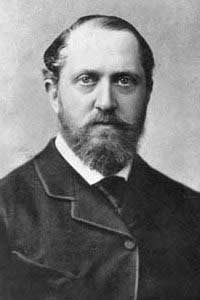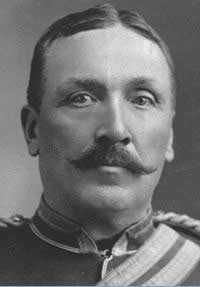FREEMASONRY
Although it is important to understand what FreeMasonry is it is more important to first understand what it isn’t.
Freemasonry, contrary to what you may read on some internet sites, is not a religion or a religious cult nor does it make any pretence to be one however it does require that a member believe in a Supreme Being. Men of all faiths have become Freemasons because the principles Freemasonry espouses are compatible with the teachings of the recognized faiths of the world. It urges its members to be faithful and devoted to their own religious beliefs.
Freemasonry is not an organization that provides material gain or advancement to its membership. In fact it is strictly forbidden to talk about business or religion in open lodge.
so what is freemasonry?
Freemasonry is the oldest and largest world wide fraternity dedicated to the Brotherhood of Man under the Fatherhood of a Supreme Being.
A Freemason is a man of faith, who uses tools of moral and ethical principles to serve mankind. He binds himself to like-minded men in a brotherhood that transcends all religious, ethnic, social, cultural and educational differences. He shows the aspirations and obligations of men of good will who seek to make themselves better than they are – not better than others.
A Freemason is dedicated – he recognizes his responsibility for justice, truth, charity, honesty and integrity. Freemasons work building their lives and character, just as a carpenter works at building a house. A Freemason believes that there is such a thing as honour, and that a man has a responsibility to act with honour in everything he does.
A Freemason teaches that principle. He believes that a life not founded on honour is hollow and empty – that a man who acts without honour is less than a man.
A Freemason believes that it is not only more blessed to give than to receive, it’s also more rewarding. He becomes involved with problems and needs of others because he knows it gives each of us a good feeling to help, a feeling unlike any other.
A Freemason believes that every person should strive to be a good citizen and that he has a moral duty to be true to the country in which he lives, for loyalty to one’s country is essential. He is expected to obey every lawful authority, obey the laws of the country in which he lives and promote its general welfare. In no way do these requirements interfere with a Freemason’s civil right to protest and seek legislative changes by lawful means.
Freemasons and the Masonic family contribute not only their money, but also an incredible amount of time to various charities. Internationally the Masonic Family donates over three million dollars per day to various charitable works. Much of our help is given anonymously. We’re not after gratitude. We’re more than rewarded by that feeling which comes from knowing we have helped another person overcome some adversity, so that their life can go on.
FAMOUS MASONS IN HISTORY
January 15, 1841 – June 14, 1908

Sir Frederick Arthur Stanley
Sir Frederick Arthur Stanley, 16th Earl of Derby, 1st Baron Stanley of Preston was Colonial Secretary from 1885 to 1886 and Governor-General of Canada from 1888 to 1893.
A Conservative Member of the British Parliament between 1865 and 1886, from
1886 to 1888, he was president of the Board of Trade. On June 11, 1888, Lord
Stanley succeeded the Marquis of Lansdowne as the sixth Governor-General of
Canada.
In 1893, Lord Stanley—a keen sportsman— donated the Stanley Cup as
an award for Canada’s top-ranking amateur hockey club. Returning to England,
he became the Lord Mayor of Liverpool and the first chancellor of the University
of Liverpool. During the last years of his life, he increasingly dedicated
himself to philanthropic work.
A monument honouring Lord Stanley and dedicating
Stanley Park in Vancouver, British Columbia, reads, “To the use and enjoyment
of people of all colors, creeds and customs for all time.”
Member of Royal Alpha Lodge No 16, London, England.
Source: uncited.
January 5, 1849 – January 30, 1919

Major General Sir Samuel Benfield Steele KCMG CB MVO
One of the first members of the North-West Mounted Police, Steele was responsible for defending the construction route of the Canadian railway.
In 1898 he was sent to the Yukon to establish border posts on the White and Chilkoot Passes. For two years he was responsible for keeping the peace, running the mails, organizing fire-fighters and instituting drainage, sewage and garbage disposal and maintaining a pure water supply for Dawson.
Taking a leave of absence from the NWMP, Steele commanded the Strathcona’s Horse in South Africa in 1900. From 1901 to 1906 he took charge of the South African Constabulary, styled after the NWMP.
During the First World War he was promoted to major-general, commanding Canadian
forces in England.
Lisgar Lodge No. 2, Selkirk, Manitoba
- Initiated: 6 Apr 1874
- Passed: 1 Jun 1874
- Raised: 6 Jul 1874
- Demitted: 19 Jan 1892
Alberta Lodge No. 37 at Macleod, NWT
- Affiliated: 5 Mar 1892
- Demitted: date unknown
Battle Lodge No. 38, Battleford, Assiniboia
- Affiliated 26 Jun 1886
- Demitted 4 Jul 1889
Source: Grand Lodge of Manitoba A. F & A. M. records.
